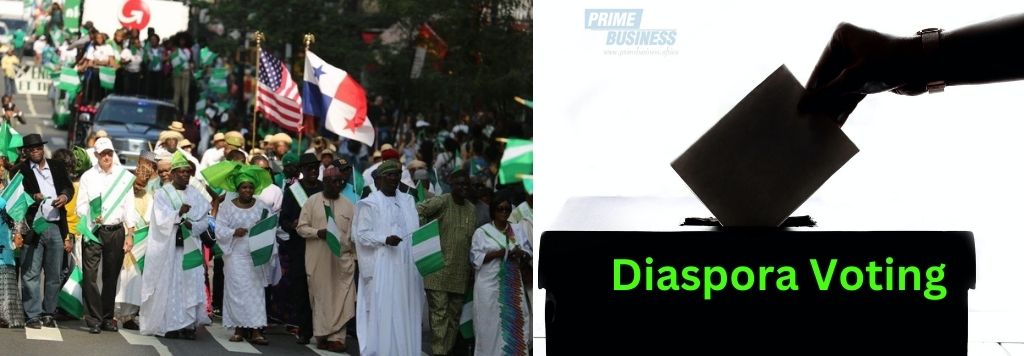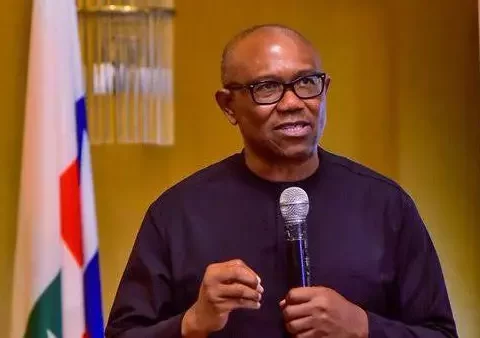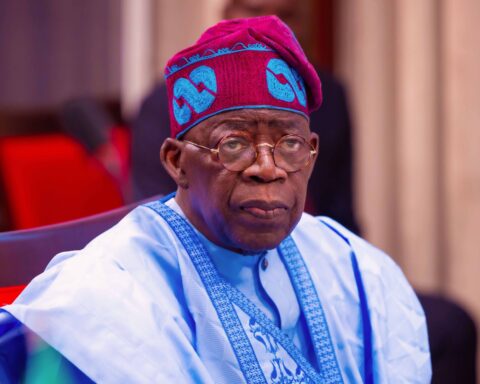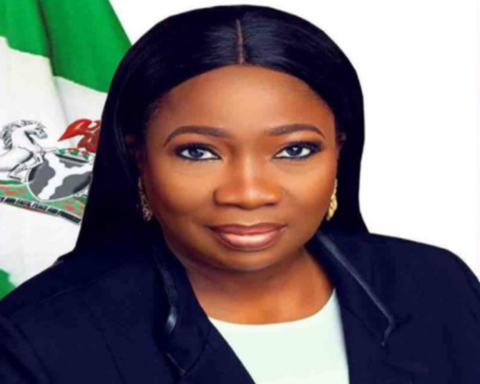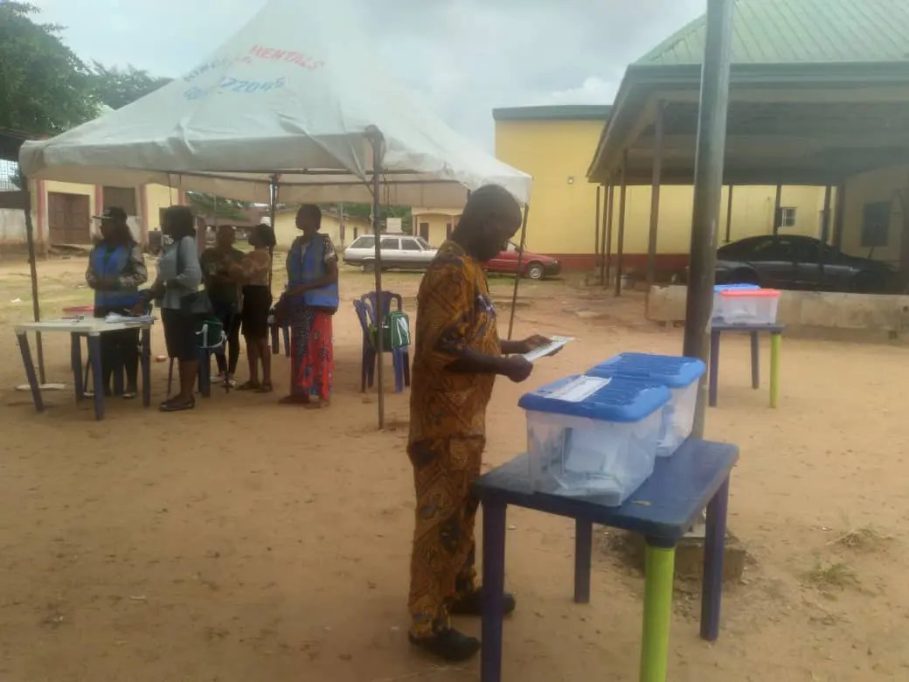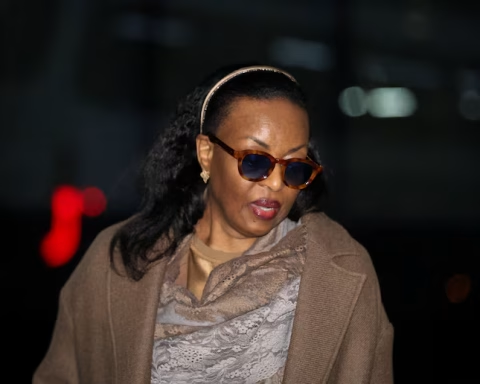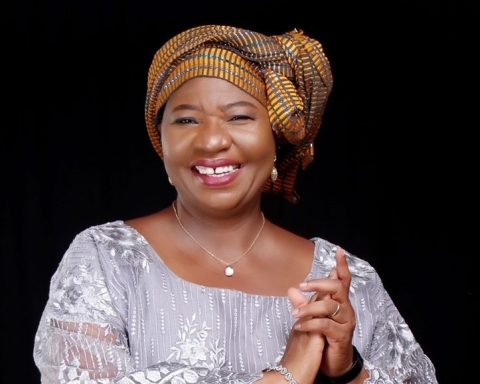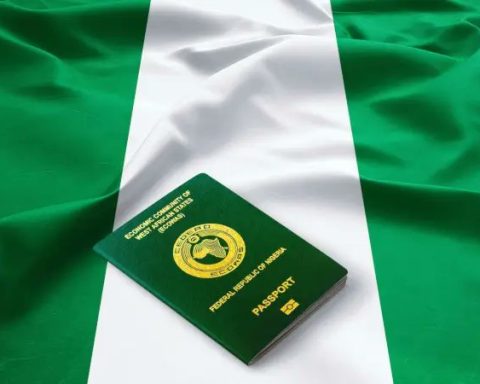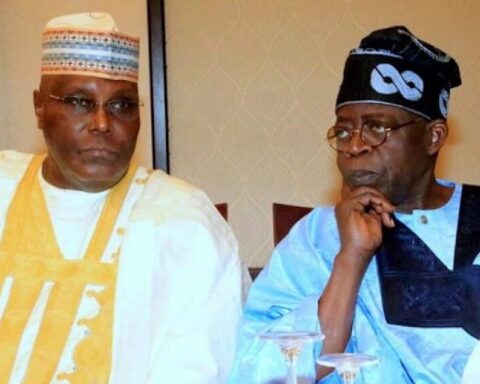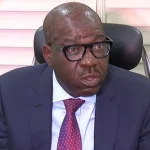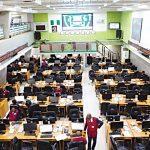With the increasing emphasis on globalization and glocalization, people living abroad continue to seek ways to contribute to home country affairs. Besides, diaspora monetary remittances, voting by citizens living abroad has become a global practice. Countries like Ghana and South Africa have laws sanctioning diaspora voting, though Ghana has had great difficulties implementing its law passed since 2006.
The practice of diaspora voting allows citizens residing outside their home country to participate in elections. Dating back to Roman times, many countries today recognise its economic and social advantages. Despite advocacy and legitimate attempts for over 15 years, Nigeria has yet to adopt this important practice, primarily due to constitutional challenges.
Join our WhatsApp ChannelSections 77 and 117 of the constitution restrict voting rights to individuals physically present in Nigeria. Additionally, Section 12 of the Electoral Act 2022 states that a person must be an ordinary resident, work in, and originate from the Local Government Area or ward covered by the registration centre to qualify for voter registration.
Diaspora Voting and Its Importance
Diaspora voting is vital for several reasons. While those abroad may have limited knowledge of events in their home country as one of the reasons for the restriction in Nigeria, diaspora voting enhances democratic processes and acknowledges the contributions of citizens living outside their homeland. It exemplifies global democratic standards, promoting active participation and integration of citizens abroad. This practice strengthens connections between diasporas and their home countries, ensuring that their perspectives and needs are considered in policymaking.
READ ALSO: Nigerian Senate Pushes For Diaspora Voting, Unbundling INEC
It also grants expatriates a voice in national governance, fostering a sense of belonging and engagement with their home country. Beyond inclusion, diasporas significantly impact their home economies through remittances, influencing policy decisions and national development strategies.
In addition to the aforementioned importance that seems to be based on the rights of those in the diaspora to exercise their franchise in their home country, diaspora voting can enhance electoral transparency in several ways. Allowing citizens living abroad to vote ensures a broader electorate, leading to more representative outcomes.
This inclusivity can deter electoral fraud, as a larger voter base makes manipulation more difficult; those abroad during voting also monitor the process to ensure their votes count. Furthermore, diaspora voters often maintain strong ties to their home countries and are invested in governance. Their participation can increase scrutiny of electoral processes, compelling political leaders to uphold integrity and transparency.
So, establishing clear voting procedures and regulations for diaspora participation can mitigate accusations of bias or fraud. Transparency in how votes are cast and counted can alleviate concerns about electoral malpractice.
How It Is Done in Other Countries
As of 2024, 141 countries allow non-resident citizens to vote in their home elections, with varying modalities for participation. Although not all these countries are particularly active in this regard, several have continued to engage their citizens abroad in electoral processes.
For instance, since 2016, Chilean citizens living abroad have been able to vote in presidential elections and national referendums at their registered consulates. This law was enacted under President Michelle Bachelet, with the first voting from abroad occurring during the 2017 presidential primaries.
Colombia also offers its citizens abroad full voting rights in national referendums, presidential, and parliamentary elections. Colombian expatriates must register at their respective consulates, with one member of the House of Representatives elected exclusively from the international constituency, ensuring their voices are heard in legislative matters.
In Costa Rica, a system introduced in 2010 allows Costa Ricans living abroad to vote for president and participate in national referendums; however, they cannot vote in local elections. Registration can occur through consulates or online platforms, making it accessible for expatriates.
The Dominican Republic has permitted its citizens abroad to vote for presidential and legislative elections since 2010. This includes seven reserved seats in the Chamber of Deputies for expatriates, ensuring representation from regions such as the U.S., Canada, Latin America, and Europe.
El Salvador passed legislation in 2022 allowing expatriates to vote in presidential and legislative elections. The Supreme Electoral Court is responsible for facilitating this process and ensuring that Salvadorans abroad can participate in the upcoming 2024 general election.
These countries have established systems that facilitate voting from abroad through consulates or online registration, thereby enhancing electoral participation and transparency among their diaspora populations.
Nigeria’s Case
As other countries have embraced diaspora voting, Nigeria’s bill for this practice has faced multiple rejections. In 2009, a bill was proposed but rejected by the House of Representatives due to constitutional restrictions on voting rights for citizens not physically present in Nigeria.
In 2012, six members of the House sponsored another bill to amend the Electoral Act for diaspora voting. However, it failed to gain sufficient support. Then on March 1, 2022, a significant attempt occurred when a bill to amend the constitution for diaspora voting was overwhelmingly rejected in a joint session of the National Assembly, with only 87 out of 390 lawmakers supporting it.
As of July 2024, the Nigerian House of Representatives advanced a Diaspora Voting Bill sponsored by Speaker Tajudeen Abbas and lawmaker Sadiq Abdullahi. This bill aims to enable qualified Nigerians abroad to vote in elections conducted by the Independent National Electoral Commission (INEC). It had previously failed during the 9th Assembly but is now awaiting a public hearing with strong support from lawmakers like Speaker Tajudeen Abbas and Sadiq Abdullahi. Although INEC has consistently supported amendments to the Electoral Act, particularly during a retreat held in Lagos in March 2022, efforts aimed at improving Nigeria’s electoral framework continue.
Nigerians in the Diaspora and the Right to Support Their Home Country Without Voting
Nigerians in the diaspora, estimated at 17 to 20 million in 2024, significantly influence their home country through economic contributions and political engagement, despite lacking voting rights. Reports show that they send around $23 billion annually in remittances, bolstering the Nigerian economy and impacting policy decisions. Diaspora communities also engage actively in political campaigns, fundraising for candidates, demonstrating their desire for involvement in governance.
That is why prominent figures like Ngozi Okonjo-Iweala and Akinwumi Adesina advocate diaspora voting rights, supported by organisations such as the World Igbo Congress and Yoruba Community in North America.
However, the focus of Nigeria leaders remains on the upcoming 2027 elections rather than necessary reforms. This preoccupation with future campaigns detracts from effective governance, as leaders prioritise securing their next political positions over addressing pressing national issues. President William Ruto of Kenya recently criticised similar behaviours among leaders, urging them to focus on delivering promises instead. In Nigeria, political factions are already strategising for 2027, overshadowing immediate governance challenges and perpetuating a culture that prioritises political ambition over citizen welfare.
To enhance collaboration with the diaspora and improve local elections in Nigeria, several reforms can be implemented:
One such reform is establishing a Framework for Diaspora Engagement. Creating advisory councils with diaspora representatives will provide insights and facilitate communication between the government and citizens abroad, ensuring their voices influence policy decisions.
Another action that can be taken is to implement a Diaspora Voting System. A recent bill passed by the House of Representatives aims to empower qualified Nigerians living abroad to vote in elections conducted by the Independent National Electoral Commission (INEC), increasing electoral participation and accountability.
Focusing on long-term development goals is also important. Political leaders should prioritise long-term governance through legislative measures that mandate transparency and accountability, such as regular public reports on progress towards electoral promises.
Addressing political posturing by fostering a culture of service over competition can shift focus from election cycles to sustainable governance, emphasising citizen welfare and community development to build trust with constituents.
Dr Mbamalu is a Jefferson Fellow, member of the Nigerian Guild of Editors (NGE) and a renowned Publisher.
Dr. Marcel Mbamalu is a distinguished communication scholar, journalist, and entrepreneur with three decades of experience in the media industry. He holds a Ph.D. in Mass Communication from the University of Nigeria, Nsukka, and serves as the publisher of Prime Business Africa, a renowned multimedia news platform catering to Nigeria and Africa's socio-economic needs.
Dr. Mbamalu's journalism career spans over two decades, during which he honed his skills at The Guardian Newspaper, rising to the position of senior editor. Notably, between 2018 and 2023, he collaborated with the World Health Organization (WHO) in Northeast Nigeria, training senior journalists on conflict reporting and health journalism.
Dr. Mbamalu's expertise has earned him international recognition. He was the sole African representative at the 2023 Jefferson Fellowship program, participating in a study tour of the United States and Asia (Japan and Hong Kong) on inclusion, income gaps, and migration issues.
In 2020, he was part of a global media team that covered the United States presidential election.
Dr. Mbamalu has attended prestigious media trainings, including the Bloomberg Financial Journalism Training and the Reuters/AfDB Training on "Effective Coverage of Infrastructural Development in Africa."
As a columnist for The Punch Newspaper, with insightful articles published in other prominent Nigerian dailies, including ThisDay, Leadership, The Sun, and The Guardian, Dr. Mbamalu regularly provides in-depth analysis on socio-political and economic issues.


